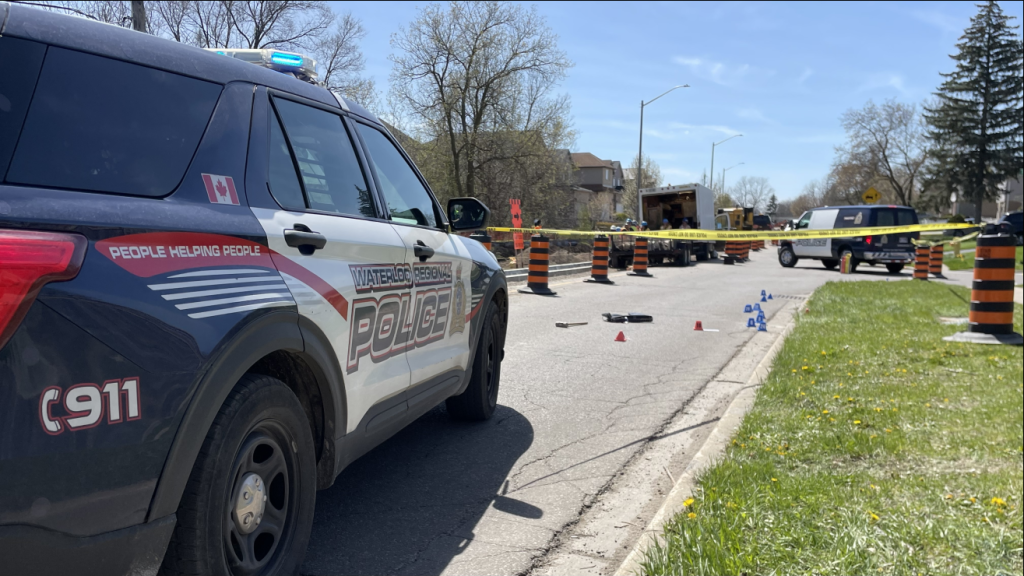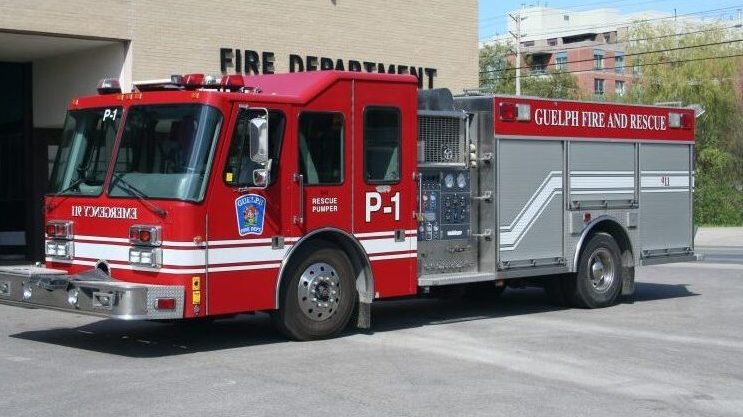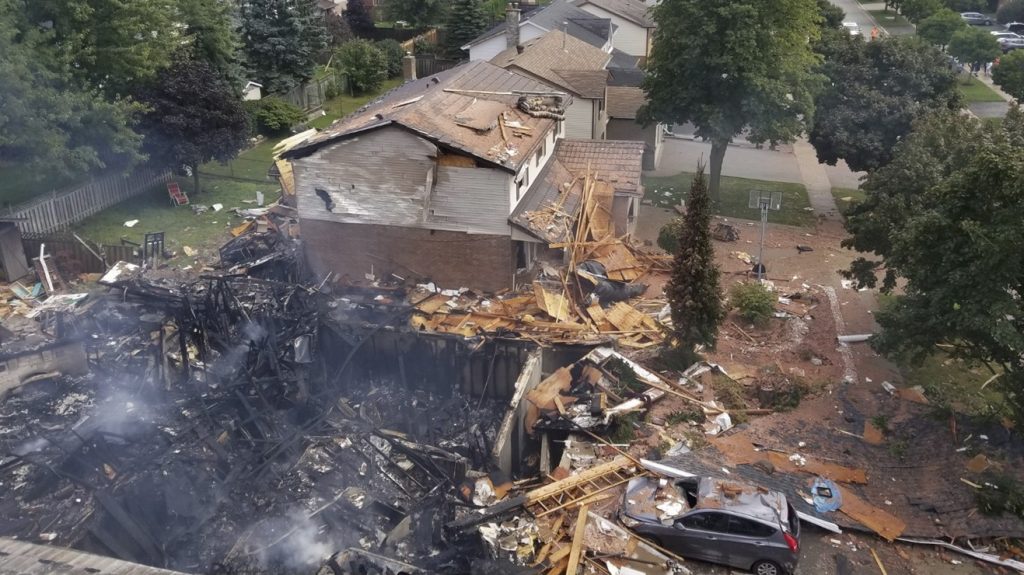Premier swings through Cambridge after meeting with Trudeau
Posted Dec 6, 2022 11:18:41 AM.
Fresh from announcing the opening of Canada's first full-scale electric vehicle manufacturing plant with Prime Minister Trudeau in Ingersoll on Monday, Ontario Premier Doug Ford and Minister of Economic Development Vic Fedeli dropped by Four Fathers Brewing in Cambridge for a tour that opened the door to a friendly meet-and-greet with municipal politicians.
The stop, facilitated by Kitchener South-Hespeler MPP Jess Dixon, was a chance to showcase a successful local business that has brought “life and fun and happiness” to Hespeler.
“Where the heck was Four Fathers when I worked at 55 Savage Drive,” joked Fedeli. “It would have been a nice place to visit every once in a while.”
It was also a chance for some of the city's newly elected councillors to get some face time with the premier in advance of what could be some tense negotiations with the province over the impacts of Bill 23.
The controversial legislation, which opens up parts of the Greenbelt for development, tightens the rules around what buildings qualify for heritage protections, and incentivizes development by limiting the ability of municipalities to collect fees for things like new infrastructure and parkland, is what prompted protests in a number of cities over the weekend, including Cambridge.
But before briefly touching on those concerns, Ford highlighted the province's efforts to generate business investment in Ontario.
“We've created the environment and the conditions for companies to come to Ontario from around the world and open up,” Ford said.
“We've cut over $7 billion of burden off the backs of companies and that's what you need to do. We have to make sure, when we're competing against the US and we do about $400 billion in two-way trade, if we aren't competitive, what will happen is what happened under the last administration. Three hundred thousand jobs were lost because of high hydro rates, high taxes, red tape, regulations.”
Ford called the retooling of the General Motors CAMI production plant in Ingersoll an example of those efforts and the quickest turnaround in the history of General Motors.
“The first EVs in Canada are going to be rolling off that assembly line” creating “so many spinoff jobs in the auto sector.” For every automotive job there's eight spinnoff jobs, he said.
Talking with Prime Minister Justin Trudeau earlier in the day, Ford said he highlighted the fact that Ontario is “about to welcome 60 per cent of all new Canadians,” an estimated three million people, over the next 10 years.
“They're coming to places like Cambridge and Kitchener, Waterloo, London,” he said.
Remarking that he read an article about municipal leaders in London voicing concerns about the plan behind Bill 23, the Build More Homes Faster Act, with a goal of building 1.5 million new homes in the next 10 years, Ford raised the issues of affordability and lack of housing.
“Well guess what. Two hundred thousand people are showing up to London's doorstep. Where are we going to put them?,” he questioned.
The premier said he understands the concerns and that it's “critical” the province work with all three levels of government to tackle the housing crisis. “Collaboration and cooperation with muncipalites and with the federal government,” he said.
It's simple supply and demand, the premier added. “The people that own their homes. God bless them. But how about their kids? How about the grandparents' grandchildren? They need a place to live.”
After touring the Cambridge brewery with Ford and Fedeli, Mayor Jan Liggett said she valued the chance to get to know the premier and minister a little bit in a neutral setting.
“We're obviously going to have a relationship from municipal to province, which as he was saying, all of us need to work together to see where we can go,” she said.
Liggett said she and others on the Ontario Big City Mayors committee will come up with a collective response outlining concerns around Bill 23 since all municipalities will be feeling the same negative impacts from it.
“Not having development charges is always a huge concern because where are we going to get the money to do what we need to do,” she said.
The Region of Waterloo predicts it could lose about $535 million in development charges over the next 10 years.
Liggett added she wants to hear more about the province's plan to support municipalities if that revenue stream dries up.
Last week Municipal Affairs and Housing Minister Steve Clark announced the province is “taking immediate action to launch a third-party audit of select municipalities to get a factual understanding of their finances, including their reserve funds and development charge administration.”
“There wasn't a lot of meat to that, so I'm always willing to keep an open mind and listen for what is going to be offered,” Liggett said.
The mayor is still waiting on a report from city staff about what the bill will mean for the city in terms of impacts to DCs and the 10-year-capital plan.
That assessment will include details on what the bill could mean for developments that are already approved by the city but still going through the planning process, she said.
As for the other elephant in the room, regional reform, Liggett said she's not sure it would happen and is waiting for more details.
Last month the province tabled the Better Municipal Governance Act to extend “strong mayor” powers to more municipalites with a goal of reducing “municipal duplication” and deliver on the province's priority of “building of 1.5 million new homes over the next 10 years.”
The province said it will task “facilitators” with assessing regional governments in Durham, Halton, Niagara, Peel, Waterloo and York.
“These facilitators will work with local governments to assess the best mix of roles and responsibilities between upper and lower-tier municipalities and ensure they are equipped to deliver on the government’s commitment to tackle the housing supply crisis.”










